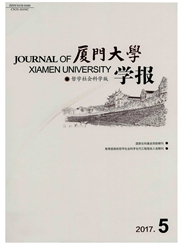

 中文摘要:
中文摘要:
美国货币当局极力推行量化宽松货币政策,期望通过美元贬值来改善其贸易收支状况.其实,无论是双边贸易收支理论模型还是季度面板数据的实证检验都揭示:影响美国贸易收支的因素并不只有美元汇率,美国贸易收支自身惯性、相对产出、相对商品价格等都是影响因素,且美国贸易收支惯性才是最主要因素.由于美国贸易收支逆差存在巨大惯性,美元汇率对贸易收支调节又存在滞后效应,妄图短期内仅仅依靠美元汇率贬值来调整过多的美国贸易逆差是徒劳的,采取一揽子的政策组合可能更为有效.
 英文摘要:
英文摘要:
U. S. authorities tried to implement quantitative easing monetary policy, expecting to improve trade balance by depreciation of the dollar. In fact, whether theoretical model of bilateral trade balance or quarter panel empirical data reveals the factors that affect the U.S. trade balance are not only the change of the dollar, but also the inertia of U. S. trade balance, relative to output, relative commodity prices of the United States, etc. The inertia of U.S. trade balance is the most important factor. Because of the huge inertia of U. S. trade balance deficit and the lag effect of U. S. dollar exchange rate on trade balance adjustment, it is futile to attempt to adjust the U.S. trade deficit in short term by depreciating the U.S. dollar. Package policy may be more effective.
 同期刊论文项目
同期刊论文项目
 同项目期刊论文
同项目期刊论文
 期刊信息
期刊信息
